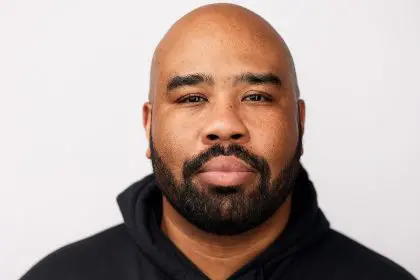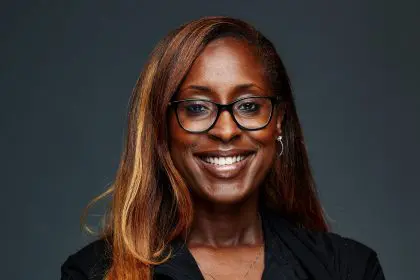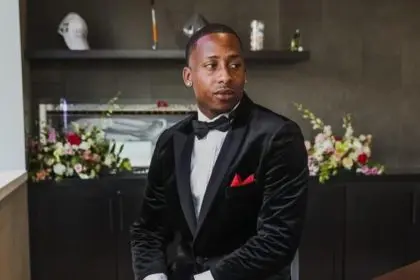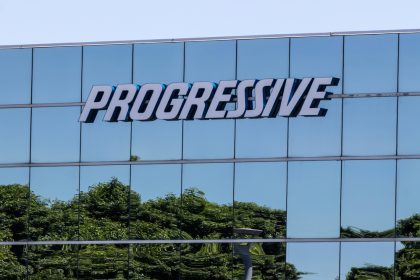A computer scientist turned waste management innovator, Justin Turk is transforming an industry that touches every American’s life but rarely makes headlines. As the founder and chairman of Livegistics, Turk has emerged as a leading voice in sustainability and waste management technology after winning a million-dollar grant from Pharrell Williams’ Black Ambition program in 2021. His Detroit-based company is revolutionizing how businesses handle waste streams through advanced analytics and operational software solutions, bringing modern technology to an industry that has remained largely unchanged for decades.
In this candid conversation with Munson Steed, Turk shares insights on entrepreneurship, raising capital as a Black founder, and his vision for a more sustainable future. With degrees in Computer Science from Bowling Green State University and Construction Engineering from Lawrence Technological University, Turk brings a unique perspective to an industry worth over $100 billion.
[Editor’s note: This is a truncated transcription of a longer video interview. Please see the video for the extended version. Some errors may occur.]
You’ve been recognized by creative geniuses who saw potential in your company. Can you share the process of how you were recognized?
We’re in the waste and recycling space, specifically focused on helping companies manage their waste streams to facilities across the country. Pharrell Williams, through his Black Ambition program, recognized us as the inaugural winner in 2021. We received a million-dollar grant, which put a spotlight on our minority-owned company. Beyond that, we’ve received recognition from Detroit, the state, HUBZone, and various organizations nationwide.
What was it like to have Pharrell Williams see something in you and put a million dollars into your vision?
In the venture space, our community doesn’t always realize the importance of relationships. We get less than 1% of all venture capital funding. When Pharrell and Felicia invested in Livegistics, we were featured in major publications like USA Today and Fortune 500. It shed light not only on minority founders but on a $100 billion industry that people encounter daily but don’t fully understand.
What tips would you give to founders preparing for their first pitch to funders?
First, you need boldness and confidence. You’ll get many no’s, but remember that investors aren’t always right. Nobody will know or believe in your dream better than you. Second, make your business relatable. Simplify it for investors. Help them understand the magnitude of the problem and why you’re uniquely positioned to solve it.
What do funders look for when reviewing investment information?
The deep, dark secret is that many funders invest in companies they are referred to. In our networks, we don’t have many people who refer us to $50-100 million funds. You have to get active and network. It’s a relationship game and a long game. You have to be willing to grind and get a lot of no’s. Statistics show race is a factor in investment, but the question becomes, “Now what?”
How important is it for a founder to have a solid team?
Extremely important. You can’t do everything on your own. You need people who can carry the load when you don’t have it that day. Having people who share in the vision and have equity in the business is crucial. You have to be a great recruiter, selling your vision and passion to convince someone to join your team.
What is the relationship like with Black funders? How do you communicate with them?
We were fortunate to have several Black-owned and operated venture firms. They understood the magnitude of what we were trying to accomplish, not just in venture but as Black founders. One of our venture firms holds monthly check-in meetings, providing a safe space to discuss the psychological aspects of starting and scaling a company.
How important is it for founders to communicate growth to funders?
Growth comes in many forms. When you’re pitching your company, think about what’s possible if nothing stands in your way. Focus on the world as you see it. That’s what funders invest in—the person, the dream, and the vision. You need to show them you can achieve smaller milestones while working toward the bigger vision.
If you were giving a speech at an MBA graduation, what would the title be?
Mission Impossible: Do You Accept This Challenge? I’d challenge everyone to recognize that circumstances today are drastically different. Your mindset and how you view the world will determine whether you become a world-changer or a world-adapter.
How would you describe the challenge of being a founder up against the world?
As a Black founder, we’re seeing venture capital funding decline to less than 1%. Whether you’re running a nail salon or construction company, you’re now a tech company. That’s the reality of 2024 and beyond. There’s a sense of urgency. We need more people who look like me to take these steps because the odds are stacked against us.
What do you say to yourself now as chairman versus when you first started the company?
Every day, I still get extremely excited about the opportunity to do something better than yesterday. I think about how I can use what I’ve learned about the market, venture capital, and business to help others. Starting and growing Livegistics over the past seven years has taught me so much, and now it’s about making an impact with that knowledge.










